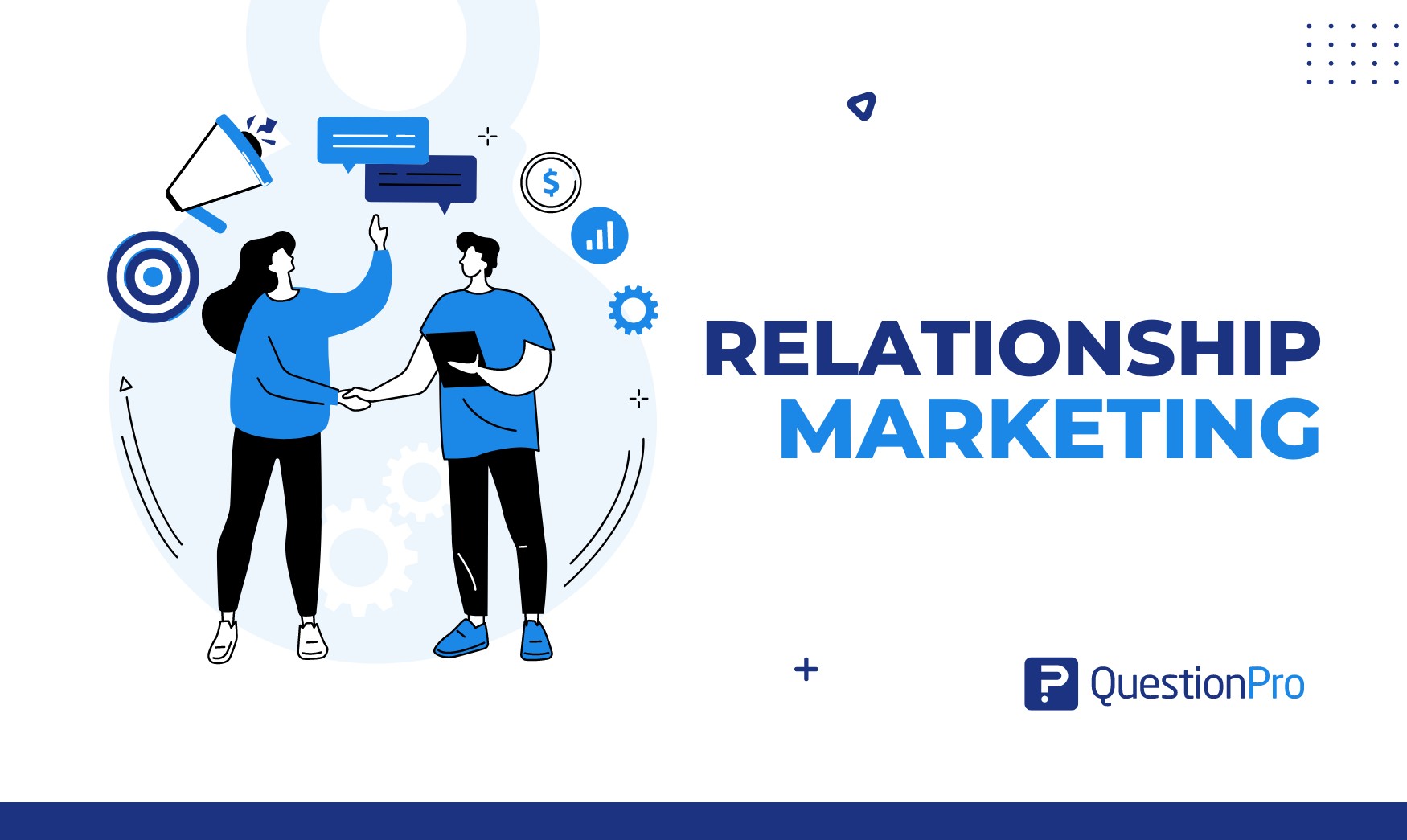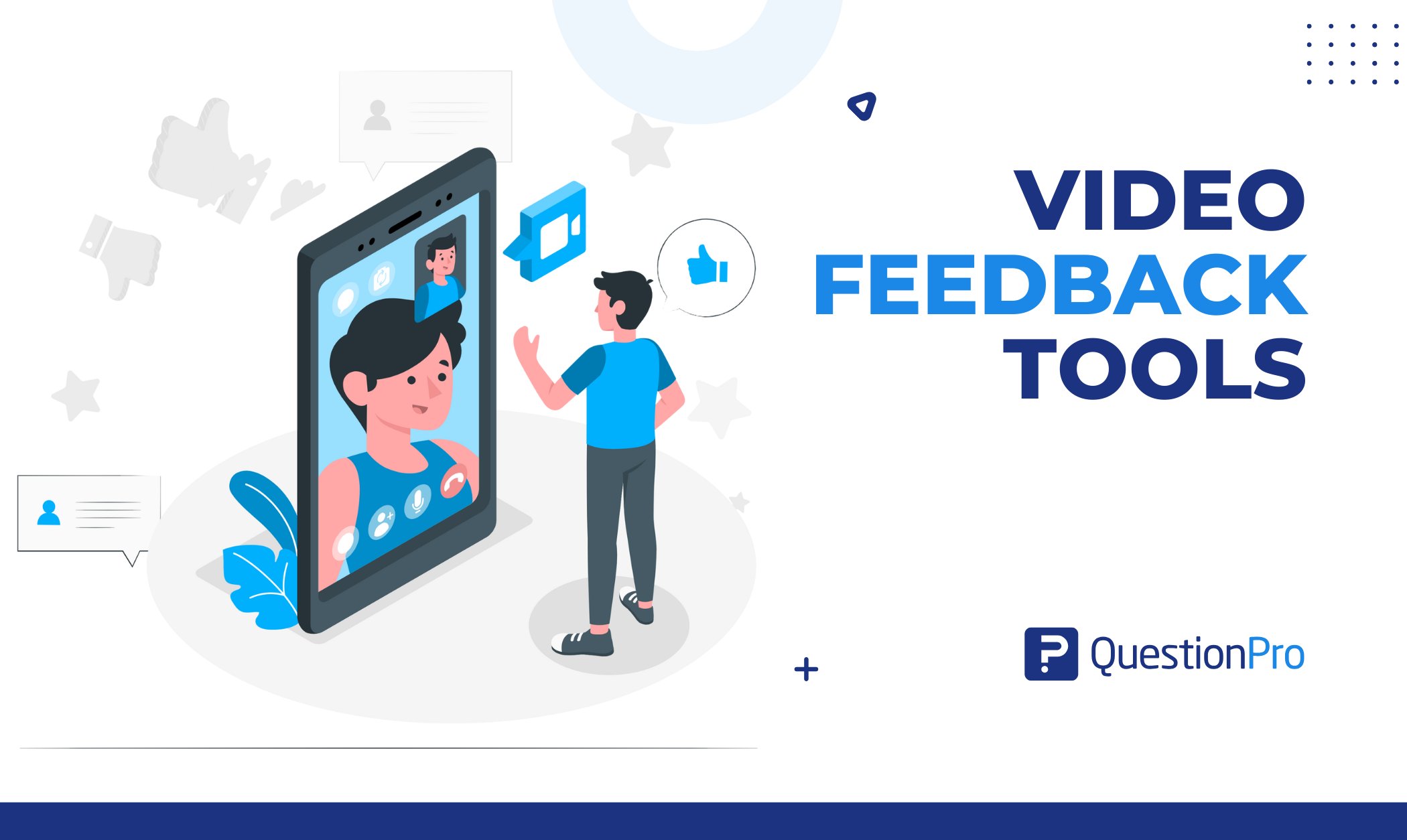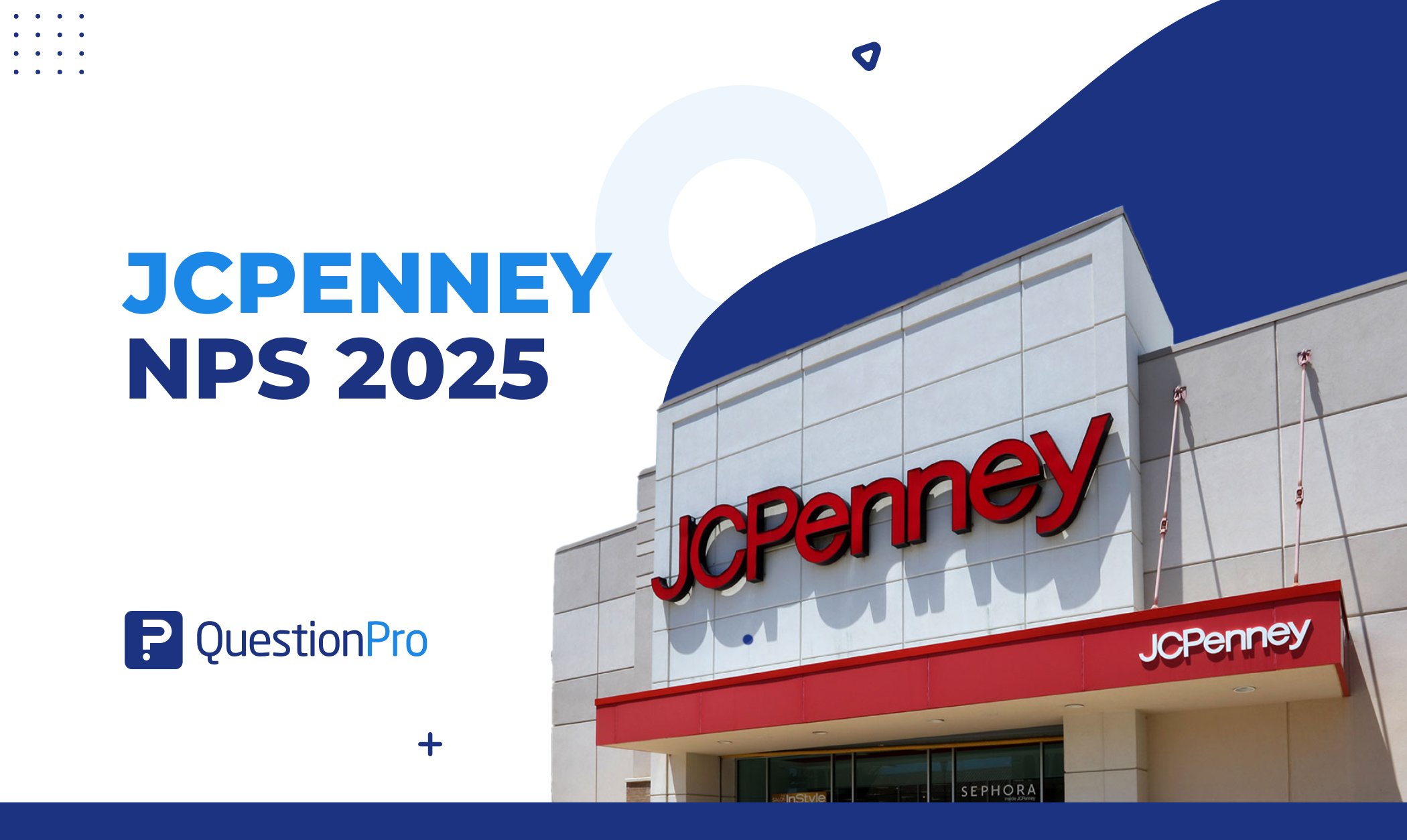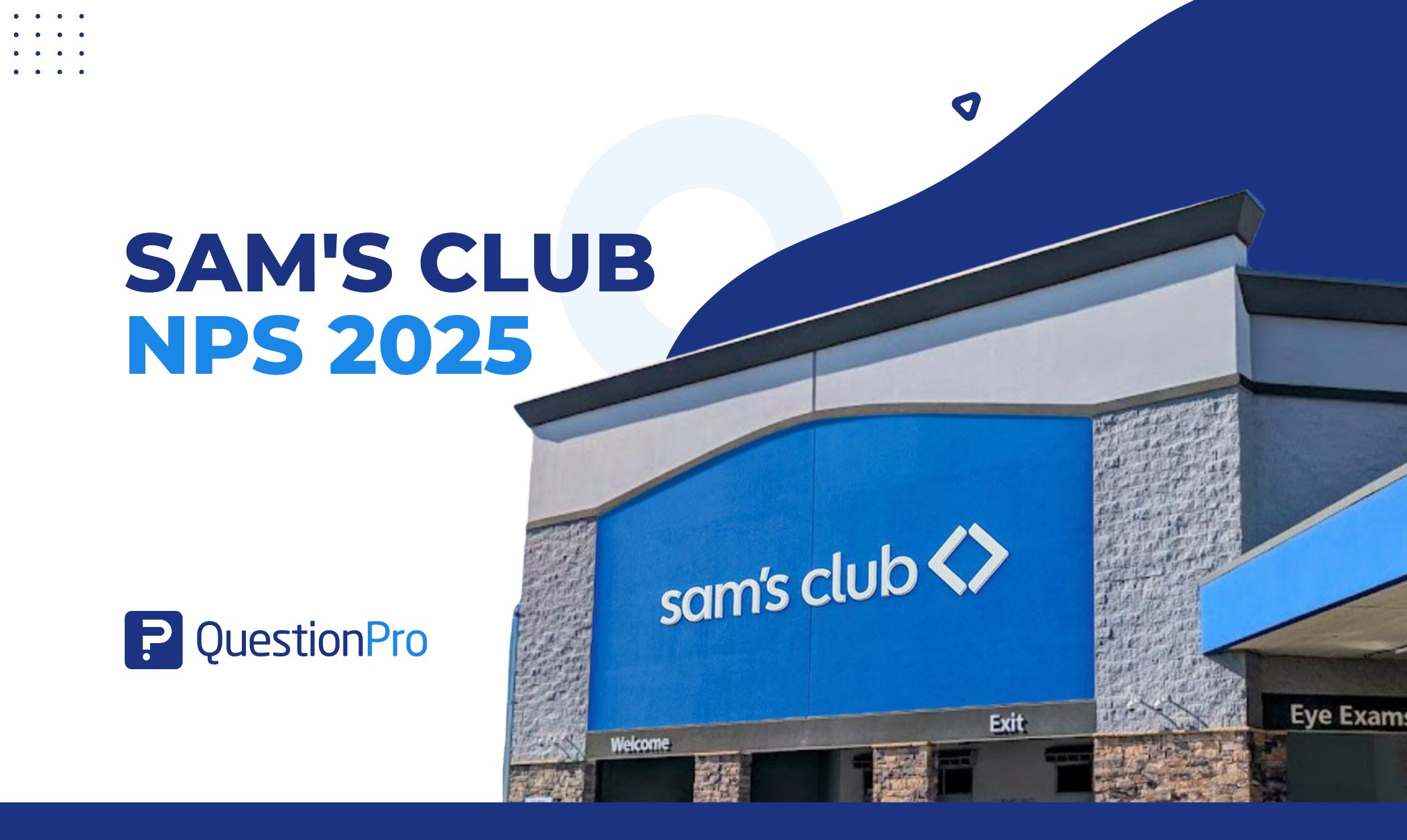
Maintaining strong relationships with customers is more important than ever. Relationship marketing, a strategy focused on building long-term connections and fostering loyalty, has emerged as a key differentiator for businesses seeking sustainable growth. Explore the principles of relationship marketing and how organizations can leverage tools like QuestionPro to cultivate meaningful connections with their customer base.
What is Relationship Marketing?
Relationship marketing is a customer-centric approach that prioritizes cultivating lasting relationships with customers. Unlike traditional transactional marketing, which focuses solely on driving sales, relationship marketing emphasizes personalized interactions, open communication, and mutual value creation. By understanding customers’ needs, preferences, and behaviors, businesses can tailor their marketing efforts to build trust, loyalty, and emotional connections over time.
Key Principles of Relationship Marketing:
- Customer-Centricity: Relationship marketing puts the customer at the center of all interactions. Businesses can create personalized experiences that resonate with their target audience by prioritizing customer needs and preferences.
- Trust and Transparency: Building trust is foundational to relationship marketing. To foster trust and credibility, businesses must demonstrate transparency, integrity, and reliability in customer interactions.
- Two-Way Communication: Effective relationship marketing requires open and transparent communication channels between businesses and customers. By actively listening to customer feedback, addressing concerns, and soliciting input, businesses can strengthen their relationships and demonstrate their commitment to customer satisfaction.
- Value Creation: Relationship marketing focuses on delivering customer value beyond the transactional exchange. Whether through exceptional service, personalized recommendations, or exclusive offers, businesses must continuously seek opportunities to enhance the customer experience and add value to their lives.
- Long-Term Perspective: Relationship marketing is not about short-term gains; it’s about building enduring relationships that stand the test of time. Businesses must adopt a long-term perspective and invest in nurturing ongoing connections with their customers.
Relationship Marketing Examples
Relationship marketing is a fundamental strategy businesses use to cultivate long-term customer connections. By building trust, loyalty, and engagement, companies can create meaningful relationships that extend beyond individual transactions. In this article, we’ll explore ten inspiring examples of successful relationship marketing initiatives implemented by leading brands.
From loyalty programs and personalized experiences to exceptional customer service and community engagement, these examples demonstrate the power of relationship marketing in strengthening brand-consumer relationships and driving business success. Let’s explore how these brands have mastered the art of fostering lasting connections with their audiences.
Here are some examples of successful relationship marketing:
| Company/Brand | Example of Successful Relationship Marketing |
|---|---|
| Starbucks | Nike Training Club (NTC) App: Personalized workout plans, training tips, and rewards for achieving fitness goals and fostering engagement and loyalty. |
| Amazon | Amazon Prime: Subscription-based service providing fast shipping, exclusive deals, and access to Prime Video and Music, enhancing customer loyalty. |
| Nike | Zappos’ Legendary Customer Service includes free shipping, hassle-free returns, and 24/7 customer support. It prioritizes customer satisfaction and fosters strong relationships. |
| Airbnb | Airbnb Host Guarantee: Protection to hosts against property damage, building trust and confidence among hosts, encouraging continued use of the platform. |
| Sephora | Sephora Beauty Insider Program: Loyalty program rewarding customers with points for purchases, redeemable for free products or exclusive experiences, encouraging repeat purchases and exploration of new products. |
| Zappos | Zappos’ Legendary Customer Service includes free shipping, hassle-free returns, and 24/7 customer support. It prioritizes customer satisfaction and fosters strong relationships. |
| Patagonia | Patagonia’s Worn Wear Program: Initiative encouraging repair and recycling of old clothing, aligning with environmentally conscious consumers’ values, strengthening brand affinity. |
| Spotify | Spotify’s Personalized Recommendations: Algorithms curating personalized playlists and recommending music based on listening habits, enhancing user experience and connection with the platform. |
| REI | REI’s Outdoor Classes and Events: Free outdoor classes and events, providing opportunities for customers to engage with the brand and connect with like-minded individuals. |
| Trader Joe’s | Trader Joe’s Customer Experience: Friendly staff, unique product selection, and relaxed shopping atmosphere, prioritizing overall customer experience to build loyalty. |
Top 7 Benefits of Relationship Marketing
Relationship marketing focuses on meaningful connections and personalized experiences, which has emerged as a powerful strategy for businesses looking to cultivate loyal and satisfied customer bases. Let’s explore seven key benefits of relationship marketing and how they can positively impact your business’s bottom line.
- Customer Loyalty: Relationship marketing focuses on creating emotional connections and trust with customers, leading to increased loyalty. Loyal customers are more likely to continue purchasing from a brand even when faced with competitive alternatives.
- Increased Customer Lifetime Value: By nurturing relationships with customers, businesses can maximize their lifetime value by encouraging repeat purchases and upselling or cross-selling additional products or services. Customers who feel valued tend to invest more in the brand over time.
- Enhanced Customer Satisfaction: Relationship marketing involves understanding and meeting the needs and preferences of individual customers. By providing personalized experiences and addressing customer concerns promptly, businesses can enhance overall satisfaction levels and build stronger relationships.
- Improved Brand Reputation: Positive interactions and personalized experiences create a favorable brand image. When customers feel valued and appreciated, they are likelier to speak positively about the brand to others, leading to an enhanced reputation and increased credibility.
- Higher Customer Retention: Building strong customer relationships reduces the likelihood of churn. Customers who feel connected to a brand and satisfied with their experiences are less likely to switch to competitors, resulting in higher retention rates and a more stable customer base.
- Word-of-Mouth Marketing: Satisfied customers are likelier to recommend a brand to friends, family, and colleagues. Positive word-of-mouth referrals can lead to new customers and organic growth, as people trust recommendations from those they know and respect.
- Competitive Advantage: In today’s competitive marketplace, establishing meaningful connections with customers can differentiate a brand from its competitors. Businesses prioritizing relationship marketing can create a unique value proposition based on personalized experiences and exceptional customer service, giving them a competitive edge.
Importance of a Good Relationship Marketing Strategy
A good relationship marketing strategy prioritizes customer-centricity, fosters trust and transparency, enables two-way communication, creates value for customers, and adopts a long-term perspective. Here’s how you can identify a good relationship marketing strategy:
| Key Elements | Description |
|---|---|
| Customer-Centric Approach | Focuses on understanding customer needs, preferences, and behaviors to tailor marketing efforts effectively. |
| Emphasis on Trust and Transparency | Prioritizes honesty, authenticity, and reliability in all customer interactions to build trust and credibility. |
| Open Communication Channels | Facilitates two-way communication through feedback mechanisms, customer support channels, and social media engagement to listen to customer feedback and address concerns. |
| Value Creation | Focuses on delivering value beyond transactional exchanges through exceptional service, personalized recommendations, loyalty programs, and exclusive offers. |
| Long-Term Perspective | Adopts a long-term outlook, prioritizing the cultivation of enduring relationships, loyalty, and repeat business over time. |
How QuestionPro Supports Relationship Marketing
QuestionPro offers a suite of tools and solutions designed to empower businesses in their relationship marketing efforts. From robust survey software to powerful customer feedback tools, QuestionPro enables organizations to gather valuable insights, engage with customers effectively, and build lasting connections. Here’s how QuestionPro can support relationship marketing initiatives:
- Customer Feedback Surveys: With QuestionPro’s survey software, businesses can collect customer feedback at every touchpoint, gaining valuable insights into their needs, preferences, and satisfaction levels. By leveraging customer feedback, businesses can identify areas for improvement and tailor their offerings to meet customer expectations better.
- Net Promoter Score (NPS) Surveys: QuestionPro’s NPS surveys allow businesses to measure customer loyalty and satisfaction, helping them identify promoters, passives, and detractors. By understanding customer sentiment, businesses can proactively address issues, strengthen relationships with promoters, and mitigate churn among detractors.
- Audience Response Tools: QuestionPro’s audience response tools, such as LivePolls and real-time feedback features, enable businesses to engage with customers during events, presentations, and meetings. By soliciting input and facilitating interactive discussions, businesses can enhance participant engagement and foster connections with their audience.
- Customer Journey Mapping: QuestionPro’s customer journey mapping tools enable businesses to visualize and understand the end-to-end customer experience. By mapping customer touchpoints, pain points, and interactions, businesses can identify opportunities to optimize the customer journey and deliver seamless, personalized experiences at every stage.
- Personalized Email Campaigns: With QuestionPro’s email marketing tools, businesses can create and send personalized email campaigns tailored to individual customer preferences and behaviors. Businesses can strengthen their relationships and drive engagement by delivering relevant content and offers directly to customers’ inboxes.
Conclusion
Relationship marketing has become a strategic imperative for businesses looking to differentiate themselves and drive sustainable growth. Businesses can cultivate meaningful connections with their customers and establish a competitive advantage by prioritizing customer-centricity, trust, communication, value creation, and long-term relationships.
With tools like QuestionPro, businesses can unlock new opportunities to engage with customers, gather valuable insights, and build lasting relationships that drive success in the digital age.







